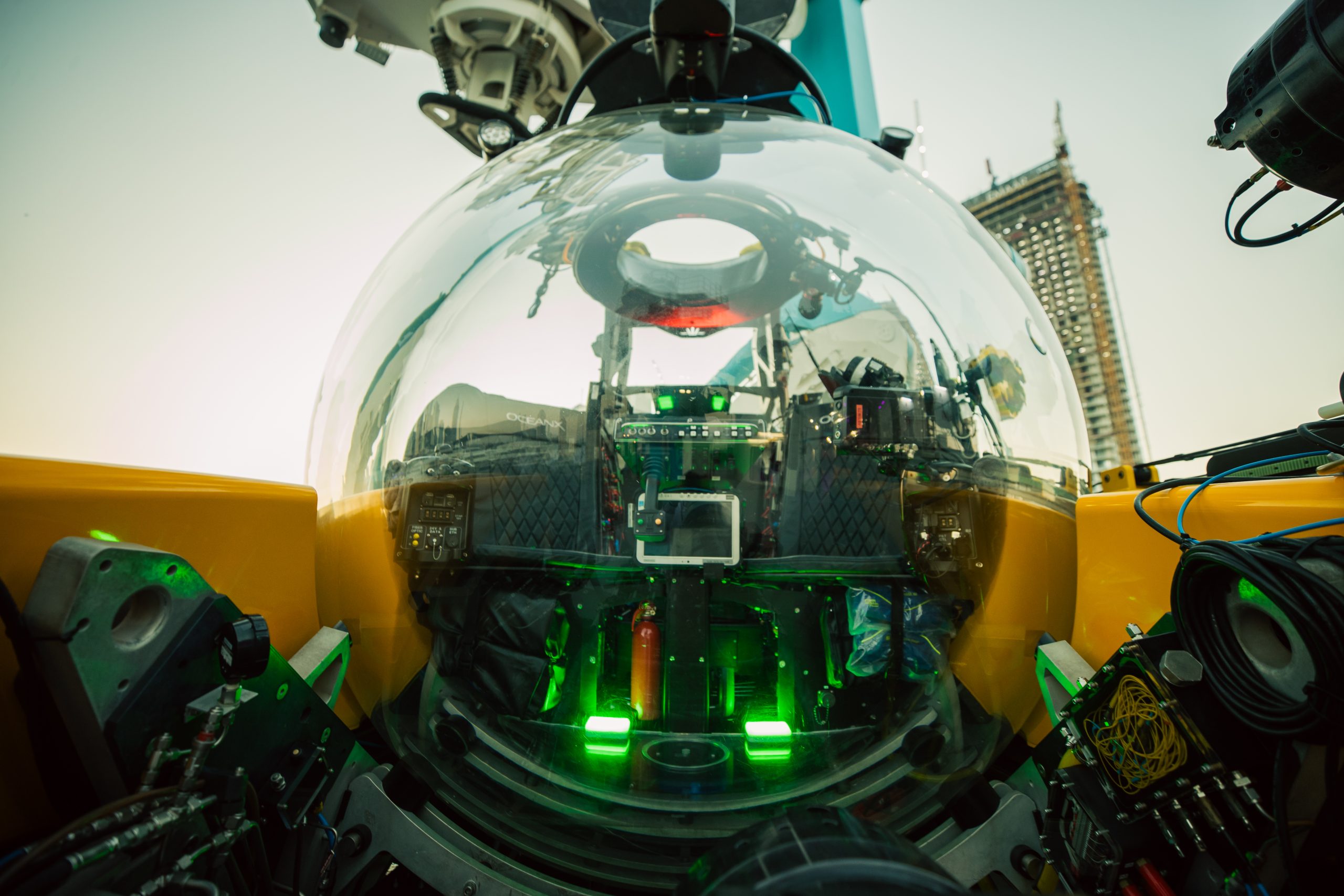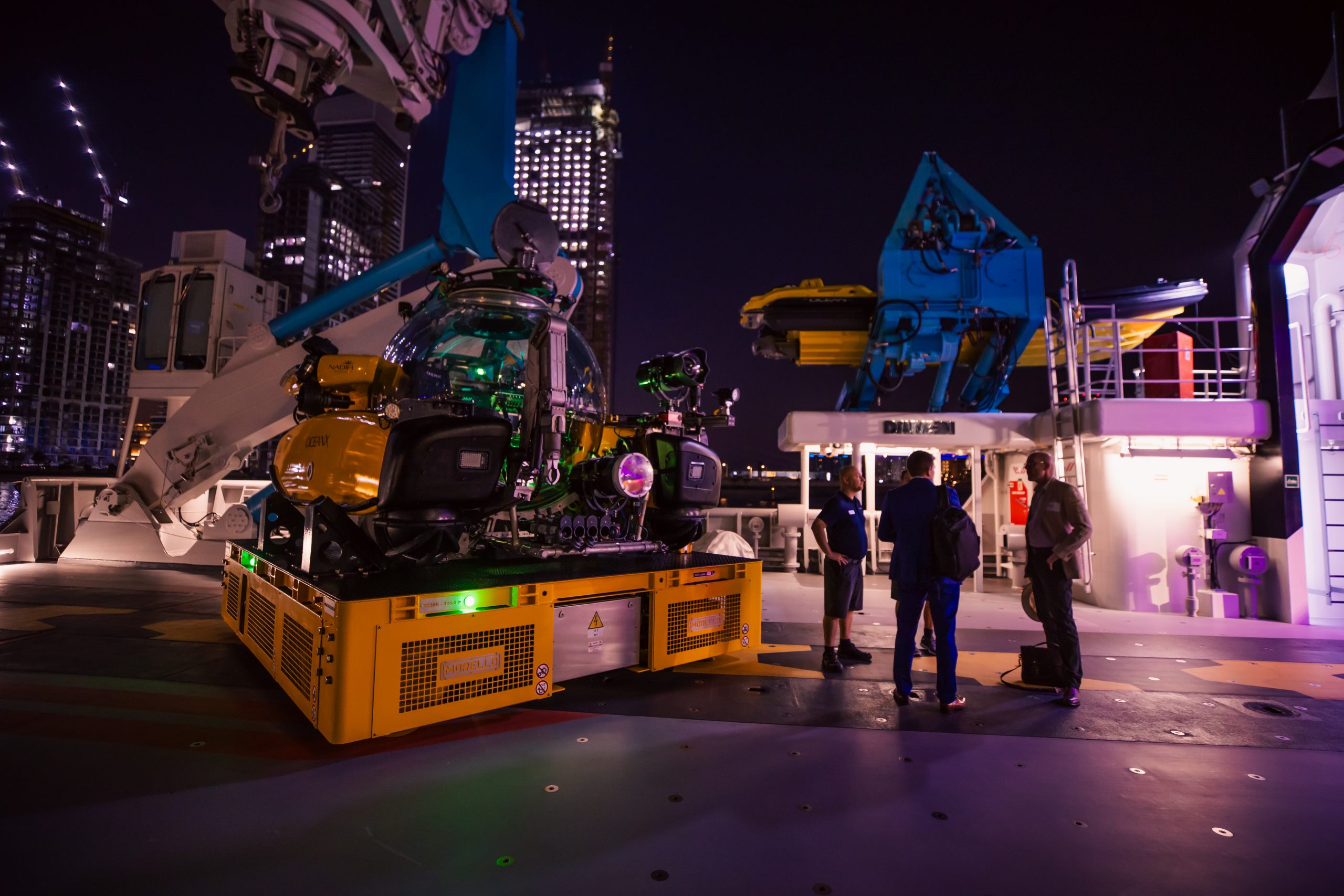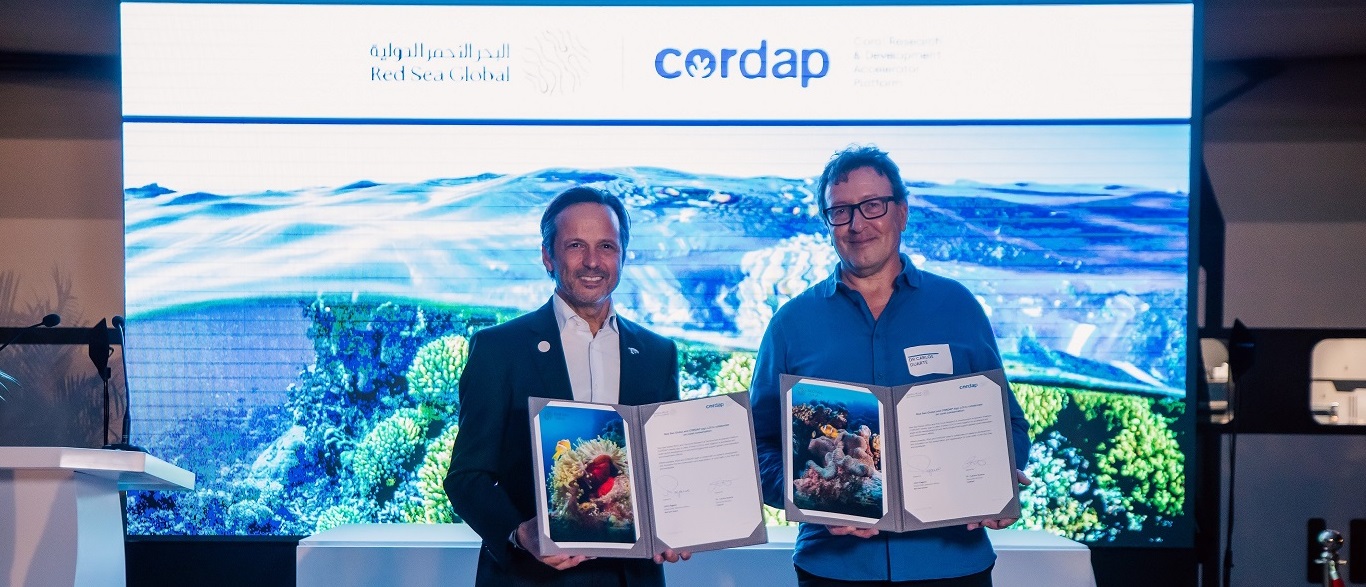COP 28, Dubai
CORDAP is pleased to announce a partnership with Red Sea Global (RSG), an international developer focused upon responsible development and regenerative tourism.
Launched at COP28 in Dubai, the supporting partnership will see RSG work with us to accelerate and scale up development of new technologies that support international coral conservation efforts.
Professor Carlos Duarte, Executive Director at CORDAP, said: “The greatest risk to the planet does not rest on the climate and biodiversity crises, but on people giving up on the dream of a healthier, cleaner and safer planet. Many ecosystems and species could still be rebuilt by 2050 if people worked together to repair the damage and stabilize the climate. CORDAP, together with RSG, is an engine for keeping that dream alive.”
Culturing coral fragments up to 10 times faster than nature
RSG has already pioneered research in this field with its Coral Gardening Pilot Project. The developer is monitoring some 300 reef sites, rescuing corals through relocation and testing coral farming techniques to restore coral reefs. In 2021, they established several offshore floating nurseries to sustain and grow a small number of rescued corals, achieving a 97% success rate.
Raed Albasseet, Group Chief Environment and Sustainability Officer at RSG, said: “Our collective efforts have yielded valuable insights into the best conditions and techniques for coral enhancement. We’re confident, as we move into the next phase, we can further push up survival rates and expand capacity. This will help us in our immediate goal to actively enhance selected reef areas with low coral cover to preserve the ecological and aesthetic value of coral reefs in our destination areas. After that, we’re setting our sights on coral regeneration globally.”

Helping to restore the marine environment and protect marine species
Next year RSG will take delivery of a million-dollar coral breeding lab, which will allow its team of scientists to produce juvenile coral at multiple points throughout the year. Compared with corals in the wild, which only breed over a few days each year, this could mean an exponential increase in the number of corals grown for reef enhancement.
The developer is already deploying advanced technology, including robots and machine learning, to monitor coral cover. It captures 3D images, which are stitched together into a digital twin. This allows scientists to quickly identify and respond to any potential negative events such as coral bleaching and the arrival of invasive species. Soon, it will begin testing 3-D printed materials to create artificial substrates for transplanting large coral colonies. This will enable RSG to build small, highly functional, high-value reefs to support abundant marine life.
RSG is also constructing a marine life institute at Amaala, one of RSG’s sustainable tourism developments. The marine life institute will focus on research, discovery, and regeneration, with dry labs, wet labs, and coral and marine life rehabilitation zones. This year has also seen the opening of a mangrove nursery in August that has already nurtured one million mangrove seedlings. This represents a major step towards the company’s ambition to plant 50 million mangroves, creating new habitats that enable biodiversity to flourish while sequestering carbon from the atmosphere.


